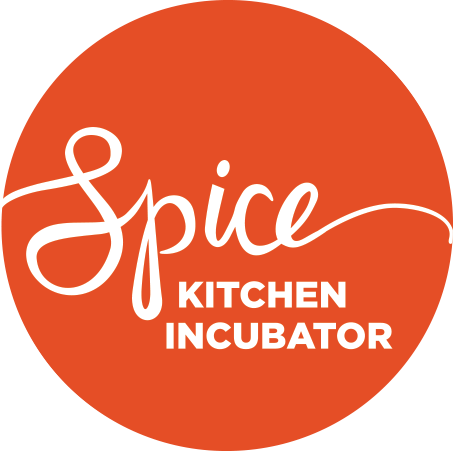AmeriCorps VISTA Creates Connections
October, 2020
Words by Anat Berday-Sacks, Spice Kitchen Incubator Value Chain AmeriCorps VISTA
"I value having a personal connection to my food. For instance, when I lived in France, we reveled in drizzling our salad with the olive oil that my Italian housemate's father produced. When I returned home to Indianapolis in spring, I enjoyed planting herbs and feeling slightly guilty each time I harvest the leaves to garnish our pizza or curry. Since I moved to Salt Lake City in June, I love how industrial, commercial, and residential buildings are jumbled together. Navigating the city by bike, I've gotten freshly ground beans at Rimini coffee roaster, bread directly from Stone Ground Bakery, and veggies from the New Roots Farm. At the Downtown Salt Lake City Farmer's Market, I excitedly gifted the owner of my favorite honey stand two challah rolls - a traditional Jewish sweet bread - that I had baked using his honey.
While working for the Spice Kitchen, I've heard directly from entrepreneurs about the importance of ingredients. Chef Saadiyah of Ashikat Kitchen pointed her spoon at me and declared that she would never use canned chickpeas or tomatoes in her kushari dish, and Chef Michaela of M Bake Shop chose to make peach galettes in August expressly* because the peach harvest was at its peak. Producers are aware of the benefits and market demands for locally-sourced products, but they face the same challenges as consumers: goods must be accessible and affordable. I've seen firsthand how it can be difficult for entrepreneurs - especially for socially disadvantaged chefs - to access local agricultural products.
Anat helps to package Community Food Boxes earlier this summer
As Value Chain AmeriCorps VISTA for the International Rescue Committee, my goal is to build networks between viable agricultural producers, value-added and culinary producers, and retail markets. I aim to develop a streamlined process for purchasing local products, as well as trainings and toolkits for value-chain coordination. A value chain not only generates economic opportunity for producers, sustainably strengthens the local food ecosystem and allows communities/consumers to form personal connections to their food."


